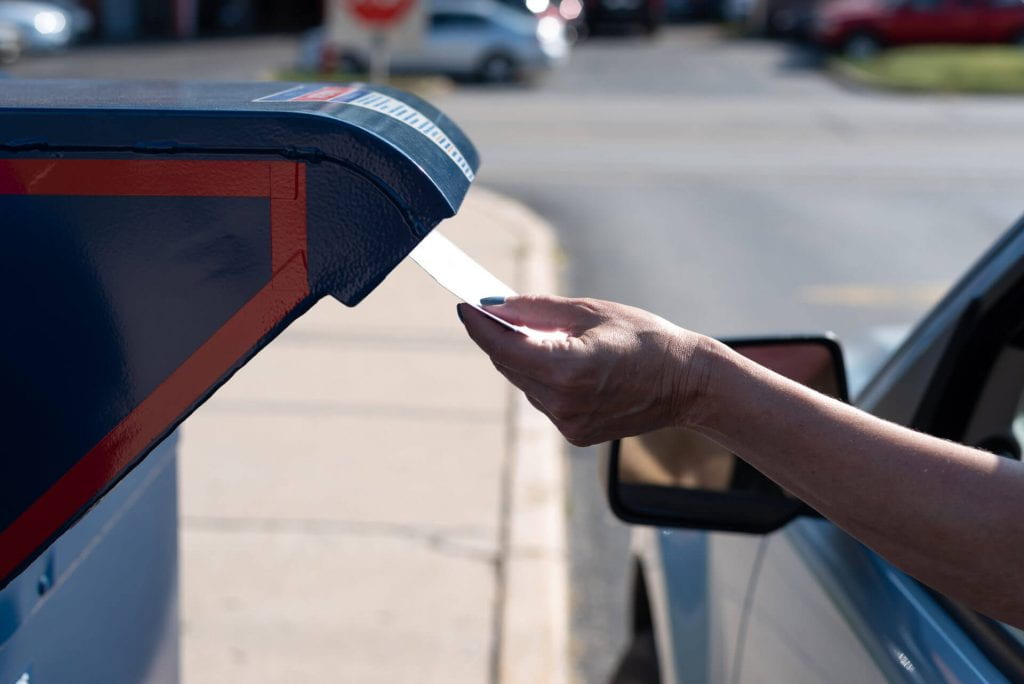The USC Election Cybersecurity team presented their initial findings on how states fortify their election systems after hosting workshops in all 50 states and speaking with officials at every level.
By Nick Nuccio, originally published by USC Viterbi.
American democracy has another challenge to contend with in 2020: the reality of cyber attacks.
“All stages of today’s elections are dependent on computers,” said Cliff Neuman, director of the USC Center for Computer Systems Security. “Those wanting to disrupt elections can hack emails, mislead voters about polling places, manipulate voter registration systems, or directly attack the systems that count votes.”
USC’s Election Cybersecurity Initiative is an ambitious project started in January 2020 to counteract these measures. Reaching across state borders and partisan divides, the initiative aims to create a nationwide effort to protect American elections from cyber attacks.
A multidisciplinary team of researchers from six schools—USC Viterbi, USC Dornsife, USC Annenberg, USC Marshall, USC Gould, and USC Price—led a workshop in every single state of the union, learning about the techniques and strategies that local government officials employed to keep their elections safe. While this initially meant traveling throughout the country, the onset of the COVID-19 pandemic led to a transition to virtual workshops.
Election security has been a hotspot in the national conversation since the 2016 presidential election when a multi-agency investigation revealed that foreign elements repeatedly probed state voter databases for insecurities and exploited them most notably in Illinois and Arizona. This was furthered by the proliferation of false and unsourced information on social media and the hacking of campaign managers’ email accounts.
USC’s team spoke with officials at every level, from voting clerks to state governors, to learn how states are attempting to fortify the weaknesses in their election systems in 2020. They presented preliminary findings on October 28 in a virtual program titled “Election Cybersecurity: Lessons from USC Workshops with Leaders in all 50 States.” The event, held via Zoom, assembled expert speakers from around the country and representatives multiple political parties to compile their collective knowledge.
A common theme was the importance of bipartisanship based on the reality that election failures threatened not just one party, but democracy as a whole. Many panelists spoke of cooperating with election officials from other parties to achieve common goals. Prolific politicians from both the Democratic and Republican parties attended the event as did USC President Carol Folt.
“The power that any of us have as elected officials comes from the consent of the governed,” said Ohio Secretary of State Frank LaRose. “And the only way that we establish consent of the governed is through a free and fair election that everybody trusts and knows was an honest contest.”
Cybersecurity threats are further compounded by the COVID-19 pandemic. The 2020 elections are already seeing record-high numbers of voters planning to vote by mail or by in-person early voting which means that multiple systems, human and technological, with various vulnerabilities may be at risk.
USC Viterbi Dean Yannis Yorstos also highlighted the need for engineers to rise to new challenges facing our democratic process, particularly in building and restoring trust.
“A fundamental goal of engineering is that we are able to trust the systems we produce,” he said. “For example, we want to trust that bridges won’t collapse, that a power plant won’t explode. And, in the case of democracy, trust that our elections will not be subverted.”
